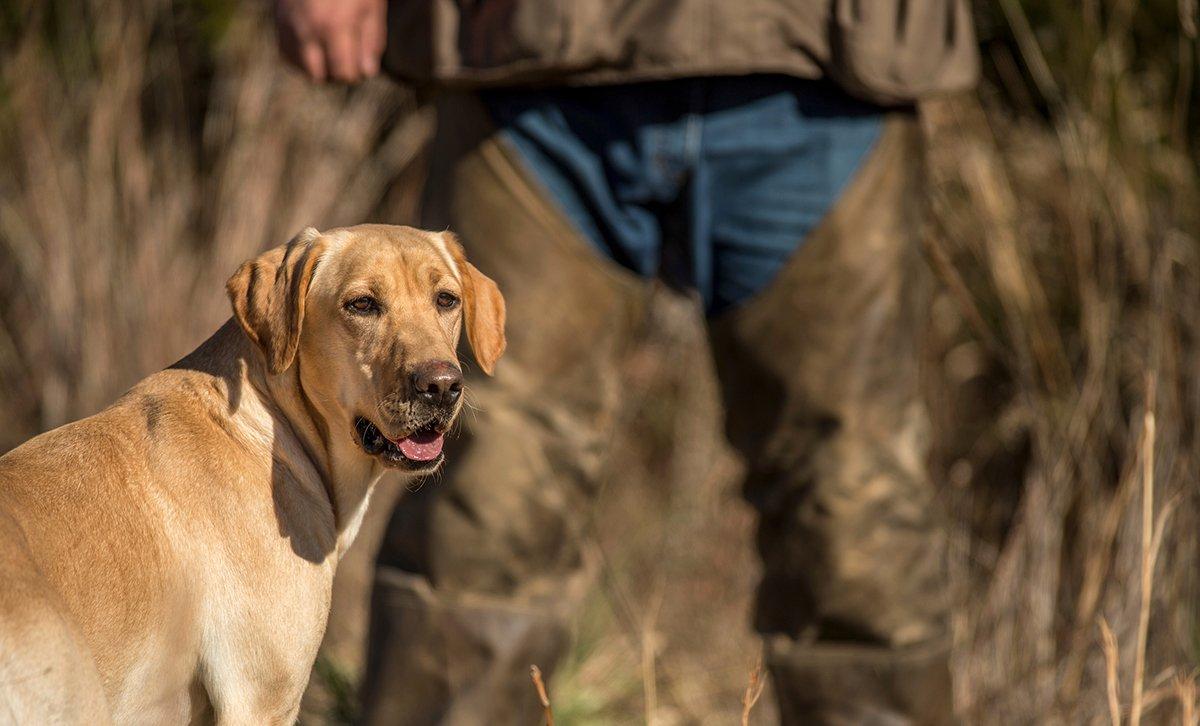Seemingly innocent slips can quickly morph into major problems
Duck and goose hunters might seem demanding and particular about our dogs' discipline and behavior. In fact, some outside observers suggest that we would benefit from a big-picture view.
Maybe that's true at times. However, we have good reason to keep seemingly high standards, and it's summed up in an aphorism: Little bad habits quickly become big bad habits. And those big bad habits can cause major trouble afield.
Let's examine some seemingly innocent behavior your dog can lapse into and discuss how to correct those potentially disastrous quirks.
Selective Hearing
I'm convinced that Labs have an on-off switch for their ears. When it's time for meals, play or training, their hearing seems fine. But when you try to call them in during a cold night or correct them during the fog of an action-packed hunt, they might as well be deaf.
Simple fix: You must follow up on every command until the dog complies. It's deeper than that, of course. The dog must fully understand the command and your expectations. Moreover, you should never give any command unless you can enforce it. Sit means sit until you say otherwise. Stay means stay, even when the guns go off. And here or come mean come here now — not in two minutes or after the ducks stop flying. Train, enforce and then follow through — always.
Dropsies
Retriever guys work with their dogs to achieve a solid yet graceful hold that the dog won't relinquish until ordered to do so. Yet when Rover clambers into our boat and then spits a duck onto the deck to shake and spit out the feathers, we often ignore it, mostly because other birds might be decoying or we figure we have the duck in hand anyway. Huge mistake.
We always need to encourage and reinforce hold, whether it's with a dummy during training or a wing-tipped pintail in the marsh. This isn't just rigid protocol that makes the dog appear polished. A dropped dummy will stay put. The wing-tipped pintail will quickly scamper into the cattails and might escape.
Whenever your dog drops a bird, correct him immediately with the fetch and hold commands. Keep at it until he performs acceptably, even if 500 mallards are descending on your hole.
Breaking
Ah, this is a tough one. So many retrievers look rock steady when training or even at the competition line but then break like rabid dingoes when the game is real.
Again, no secrets here. It starts with solid, intelligent training that's reinforced again and again. Do not throw a dummy or release a wing-clipped pigeon until your dog is absolutely steady at heel. If he breaks before being released, call him back immediately so he gets no reward from his bad behavior.
The same goes with hunting, though this requires lots of effort. If your pup jumps into the water or runs along the shoreline after you shoot, you must correct him immediately — even if you have birds down. Then, only release him until he's complied. Correct him every time he messes up — no exceptions. Otherwise, you are telling him it's OK to behave like a dork while hunting. Soon, he'll be bolting out of the boat every time you click off your gun's safety.
Of course, reinforcing steadiness be tricky if your dog breaks after a crippled duck. Many folks say, Well, I hated to let him do that, but I didn't want the bird to get away. Hey, I've been there. No one wants to lose a bird. If your dog is prone to breaking, it might be best to hunt with a buddy and his dog, so each of you can control your pooches yet have one at the ready in case a duck starts to swim or dive for safety.
Ranging
This applies more to upland hunting, but it's relevant for jump-shooting ducks and general obedience. Never let your dog range too far. Really, about 25 yards should be the limit.
Most of us do a pretty good job of this during the heat of a pheasant hunt or when approaching a pothole full of wood ducks. Still, we might let our guard down when the dog sees our truck and wants to spring ahead or gets a snoot full of wood duck scent and can't hold back.
Nope. You must continue to rein him in, even if that requires using the e-collar and blowing your whistle. Yeah, maybe those wood ducks will flush out of range, but that's OK. They would have been too far anyway if your dog sprinted ahead 60 yards and jumped them.
Always remind your canine buddy that he should really want to be close to you, even during exciting circumstances.
Hard Lessons Learned
Confession time: My dog makes all of these mistakes. Full disclosure: At times, I've let her get away with them, figuring we'd take steps to correct things later. (Hint: That doesn't work.)
Don't be me. When hunting, put canine discipline and protocol first, even if it costs you birds. Identify and correct little bad habits immediately.
Ultimately, solid dog behavior will net you more ducks and pheasants — and keep your blood pressure much lower.
Click here for more Realtree waterfowl hunting content. And check us out on Facebook.







